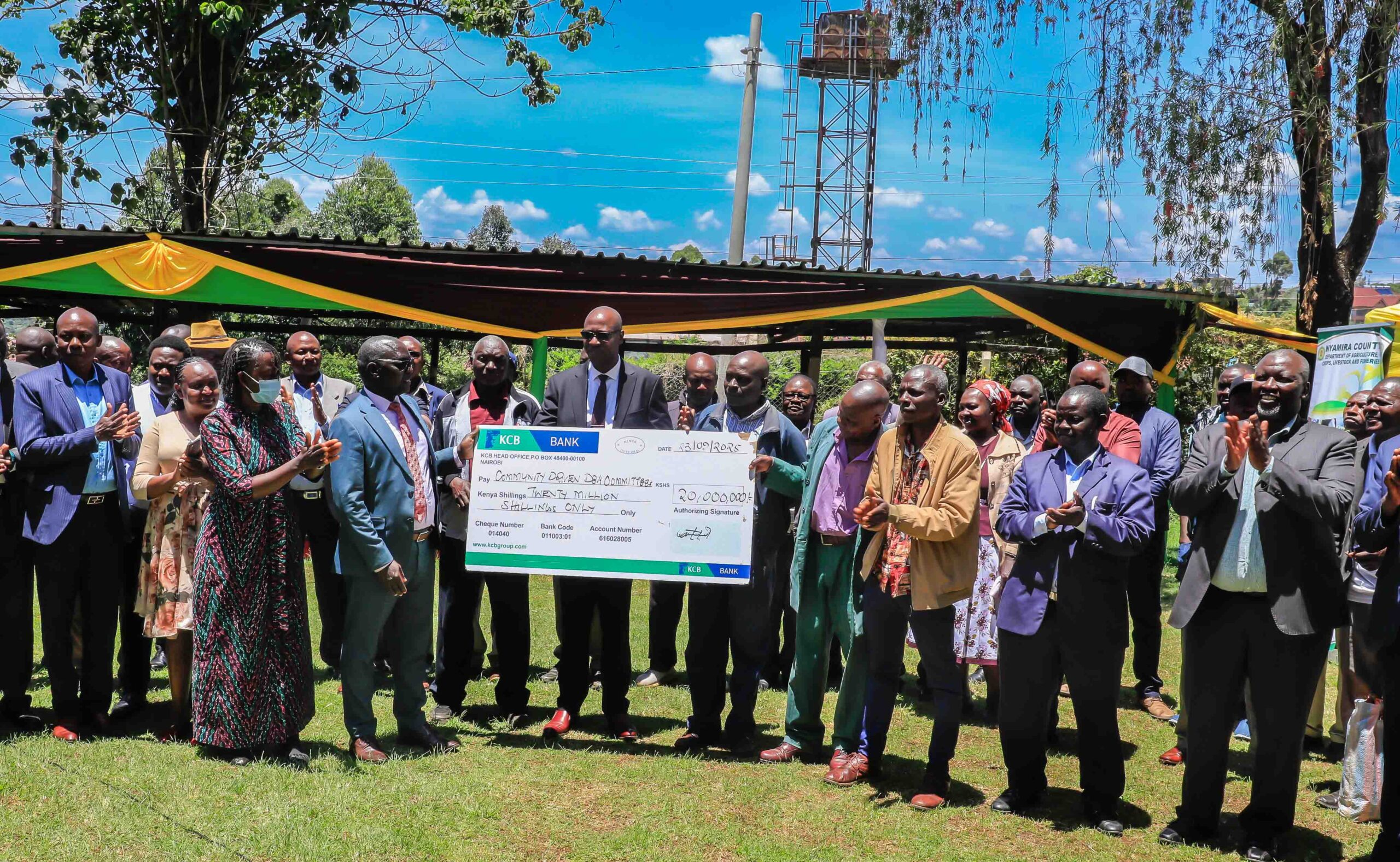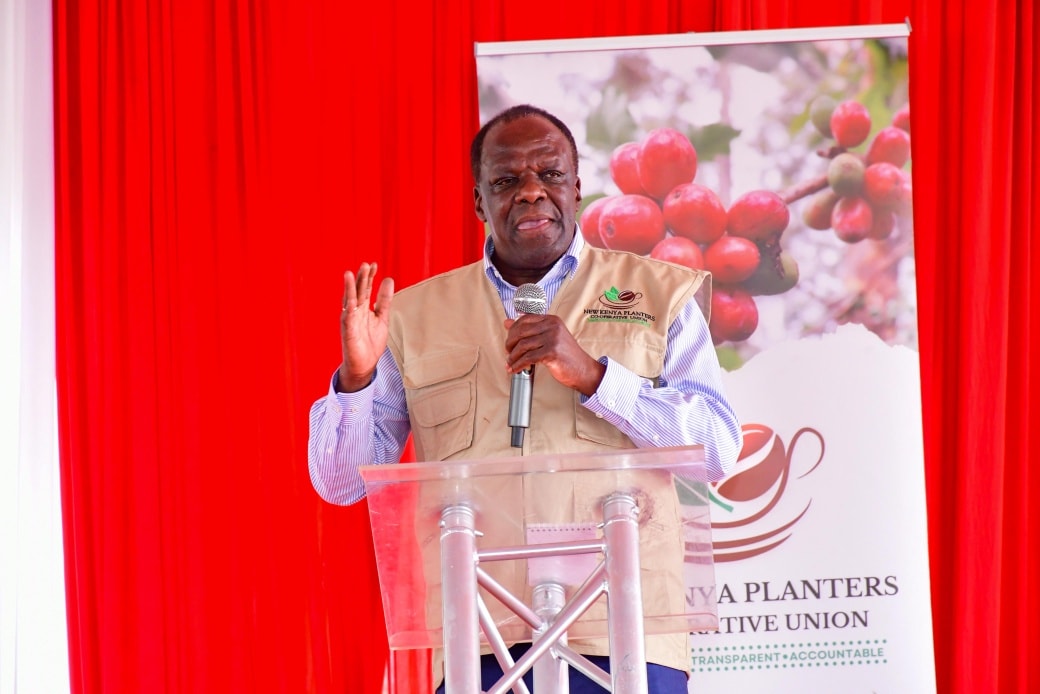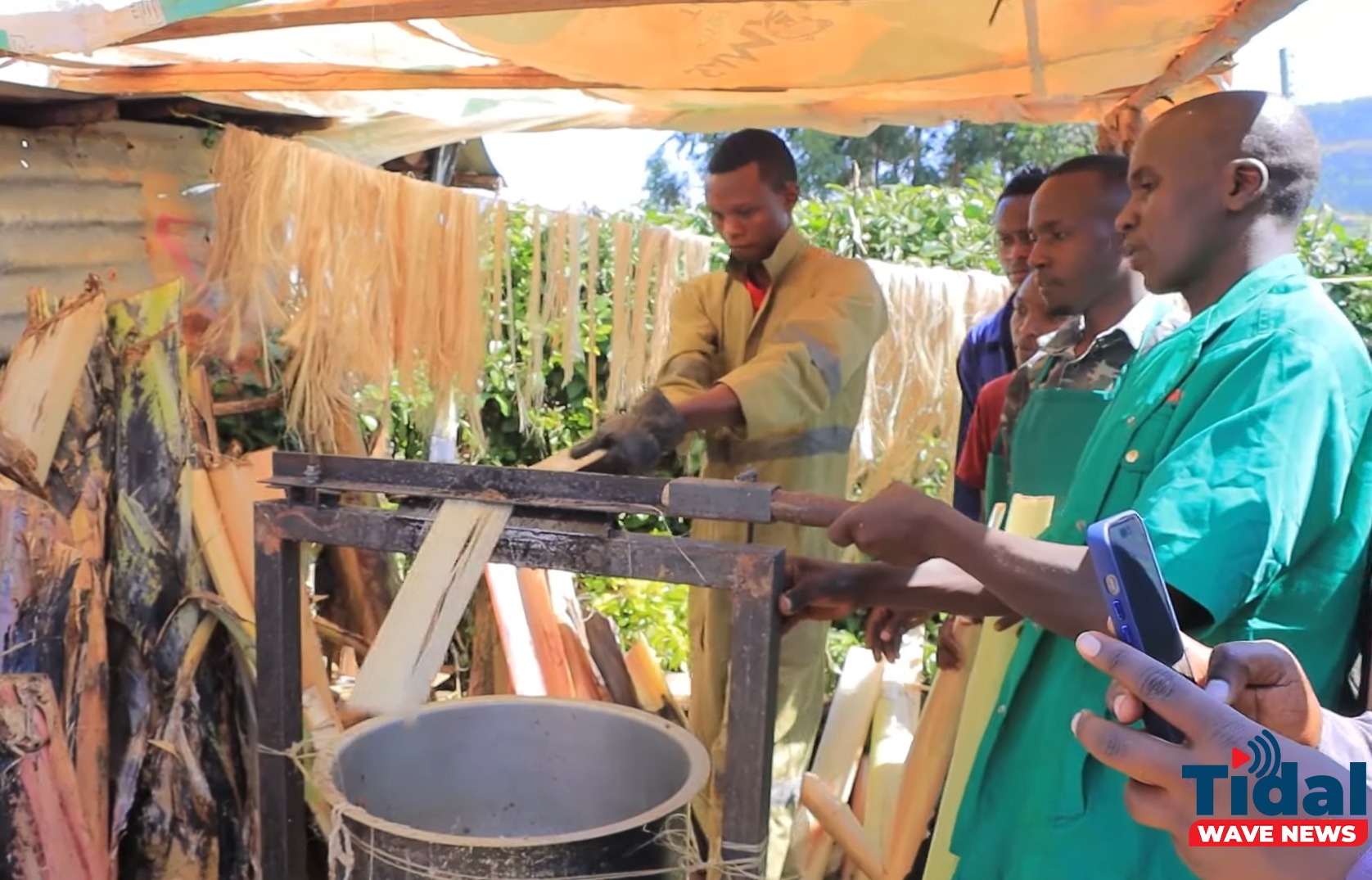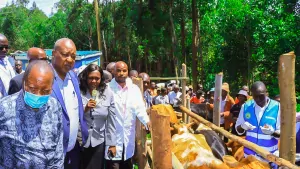
By Arnold Ageta
Nyamira county governor Amos Nyaribo has launched an ambitious revamped dairy farming campaign in the county to boost milk production in the county.
The governor noted that dairy farming contributes close to 50 per cent of the county’s GDP.
Addressing farmers at Canaan market in Nyamaiya Ward, Governor Nyaribo said the county has a cattle population of 123,951, with about 70 percent being indigenous breeds.
He told the farmers that Nyamira produces 22. 4 million litres of milk per year, way below the potential of 240 million litres.
“My administration decided to take decisive action to increase milk production from the current 2 to 3 litres per day produced to 6–10 litres per cow per day by the end of 2026,” he assured the farmers.
With increased milk production, he said, it is possible to have a milk processing plant in each sub-county.
“We are here today to launch that initiative, which is the use of artificial insemination and castration of inferior bulls,” said Nyaribo.
The governor has revamped the Artificial Insemination (AI) services in the county to boost farmers who want to fully venture into dairy farming.
The AI services will only cost the farmer KSh. 500 with one free repeat service for farmers in this subsidized programme.
The county has 20 inseminators spread across the 20 wards in the county and each of them is equipped with a motorcycle and semen from superior bulls.
Besides that, the county is in the process of setting up a farmers’ call center where they can easily get assistance.
“We have also partnered with DIGICOW, an online service to assist dairy farmers with record keeping and alerts of important dates such as the expected date of calving,” he informed the farmers.
He urged the farmers to download the free DIGICOW App on their android phones.
In his speech, the governor said that they are soon establishing a Livestock Breeding Unit that will act as a link between the County Government and farmers to promote the AI program.
The County Chief Executive Member for Agriculture, Alice Manoti, paraded and introduced the recently hired veterinary doctors who will spearhead the revamped AI services in Nyamira.
RELATED STORIES:
Climate Change’s Wrath on Kenyan Agriculture: Battling Adversity on the Frontlines
The seeds of controversy: battling drought and the GMO debate
Rural women using modern farming technologies to reap big
However, she noted that Nyamaiya Ward has the lowest uptake of AI services, prompting them to launch initiatives in the ward to educate and sensitize the farmers about the services.
“We want Nyamaiya Ward to embrace AI services to increase the amount of milk in the area and improve their lives,” she said. “We have offered free clinics, artificial inseminations, castration, multivitamins, and deworming drugs to livestock.”
She informed the governor and other county officials that the farmers have consented to utilize the market as their veterinary clinic for convenient access to the services.
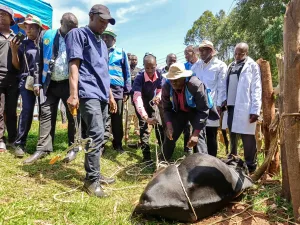
Chief Officer in charge of agriculture and fisheries, Lucas Odida, said the exercise is just the beginning of the long journey towards the improvement of dairy farming in the county.
He asked farmers to deliver their milk to the milk cooling facility in the area.
David Nyamira, a farmer who has been in dairy farming for 30 years, thanked the governor for this initiative, saying many farmers run away from farming because they lack knowledge.
“I am convinced that this initiative will help increase milk production and make AI services readily available and accessible to farmers,” he said.
Andrew Mariri, an extension officer with the county government based in Township Ward, stressed the idea of castrating inferior bulls and AI services, saying they greatly benefit the farmer in terms of milk production.
“Castrating inferior bulls helps prevent unwanted breeding and the transmission of genital diseases,” he said. “Castration should be done for calves within the first week to a few months of life.”
He added that AI is a valuable reproductive technique in livestock production that offers genetic improvement, selective breeding, and disease control.
During the event, free artificial insemination services for all cows on heat and a free animal health clinic were offered. This was to encourage our farmers to embrace modern farming technologies, including quality feed and zero grazing, to improve milk production.

